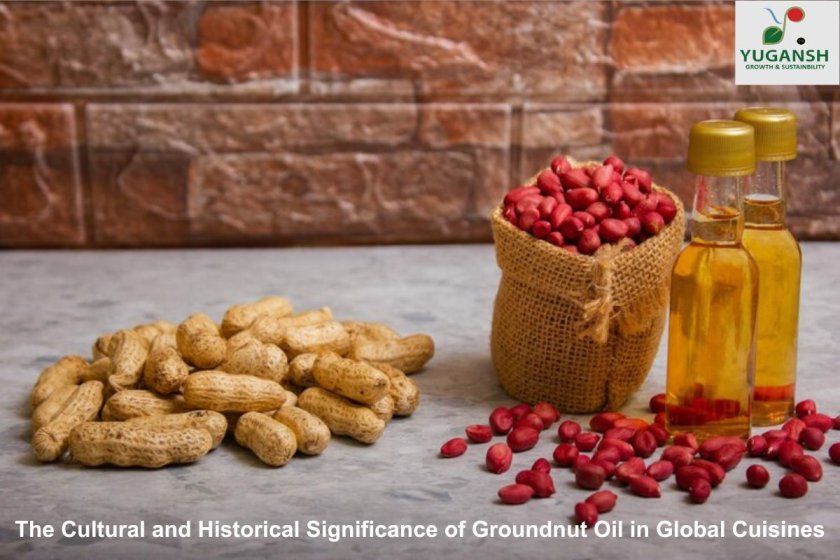Groundnut oil is one of the oldest forms of cooking oil in the world. It is prized for its unique flavour and health benefits, as it has a deep sense of history and culture. Used for centuries, this oil is the hallmark of cultures around the world. In this blog, we will explore its role and impact.
Origins of Groundnut Oil
Groundnuts, commonly known as peanuts, come from South America. Many ancient societies cultivated them due to their nutritional value and adaptability. Ancient users soon discovered that oil was extracted from groundnuts. Groundnut oil was used not only in cooking but for medicine and as a ritual ingredient as well. Moreover, groundnut oil spreads across continents, enhancing various cuisines worldwide.
Traditional Uses in African Cuisines
Groundnut oil is the essential oil used in many African countries while cooking. Its flavour helps enhance the taste of traditional dishes. People use the oil to fry, stew, and grill. On the other hand, this oil has a characteristic nutty smell, popular in African cuisine. For example, the common Nigerian jollof rice requires the application of groundnut oil to give it a rich flavour. In Senegal, groundnut oil is used to accompany a traditional meal called “Mafe.” The peanut stew has deep cultural roots. Groundnut oil also has a very high smoke point, which makes it suitable for high-heat cooking.
Role in Asian Cuisine and Traditions
Asian countries have considered groundnut oil to be highly valued for its cooking properties. It is commonly used in the cuisines of India, China, and Thailand. In India, groundnut oil is used for deep frying because its nutty flavour fits very well with spices in traditional recipes. Additionally, cold-pressed groundnut oil has been a healthy choice for Indian homes. It is pure and contains all nutrients. People believe that groundnut oil has medicinal properties. Cold-press oil is widely known as “kachi ghani” and maintains the natural flavour and nutrients of the oil. In China, groundnut oil is used more to enhance stir-fry flavours and noodles. It is also used in preparing sauces and dressings.
American Influence and the Rise of Peanut Oil
Peanut oil gained popularity in the United States during the 20th century. As it does not break down easily at high temperatures, this oil is great for frying. It was widely used in Southern dishes in many recipes. However, Southern fried chicken dishes, among others, included peanut oil as a necessary ingredient. The taste of peanut oil enhances the spices in these foods. Additionally, peanut oil is considered a healthier replacement for most fats. Quite many American households chose peanut oil for health reasons. Therefore, groundnut oil became a preferred choice in American kitchens.
Cultural Significance in South American Cuisines
Groundnut oil is closely associated with peanuts. Peanuts were originally found in South America, but it has been used for various ceremonies and dishes. Furthermore, Brazil and Bolivia use this groundnut oil at their ethnic gatherers and ceremonies. In Brazil, people commonly use groundnut oil while preparing meals for their families. The native tribes even put peanuts, which they had mixed with oil, to be used as medicine. They believed this gave them strength and vigour. Moreover, groundnut oil is still part of the culture of South America.
Cold Pressed Groundnut Oil in Modern Cuisine
In recent years, cold-pressed groundnut oil has gained popularity. People crave it because it is pure and contains lots of health benefits. Cold-pressed oil does not lose the natural flavour of the oil as refined oils do. Additionally, cold-pressed oil does not contain any heat in its manufacturing process; hence, nutrients and antioxidants are preserved in this oil. Therefore, the cold pressed groundnut oil is more favoured in healthy diets. Using it in salads, dips, and marinades will give a nutty flavour. Moreover, it has become a compulsory ingredient in vegan and vegetarian kitchens.
Groundnut Oil’s Health Benefits
Groundnut oil comes with a host of other health benefits. It is rich in good fats; they control the heart. Besides, they contain vitamins E and antioxidants. These elements boost immunity and enhance skin health. People resort to groundnut oil because it is healthier than any other oil. Furthermore, groundnut oil has a high smoke point. However, it’s stable for cooking. Cold-pressed groundnut oil retains more nutrients. Therefore, it is healthier to cook with.
Groundnut Oil in Cultural Celebrations
Groundnut oil is used in cultural festivals around the world. In Africa, groundnut oil is used in most of the festive foods and is consumed by members of the family. In Asia, groundnut oil is used for making sweets during festivals. Indian festivals comprise sweets prepared with groundnut oil. Furthermore, the natural flavour that groundnut oil provides enhances the taste of such foodstuffs. In the United States, people apply peanut oil to their Thanksgiving celebrations. Another tradition is the serving of fried turkey, smoked in peanut oil. Thus, groundnut oil is still culturally relevant in celebrations.
Modern Resurgence of Traditional Oils
In the last few years, traditional oils have once again gained a lot of popularity. People are turning back towards natural and traditional options for cooking. Cold-pressed groundnut oil, kachi ghani mustard oil, and a wide range of other oils are popular again. They come with purity and healthiness. Additionally, using this oil means you’re supporting the local farmers and their sustainability. People use traditional oils because they present authentic flavours together with nutritional benefits. Groundnut oil represents this very move of bringing back nature.
Conclusion
Groundnut oil is valued worldwide for its unique flavour and health benefits. From African stews to American dishes, people come together through food and culture. The popularity of the cold-pressed oil simply underlines its cultural value and lasting impact on the culinary sphere.


